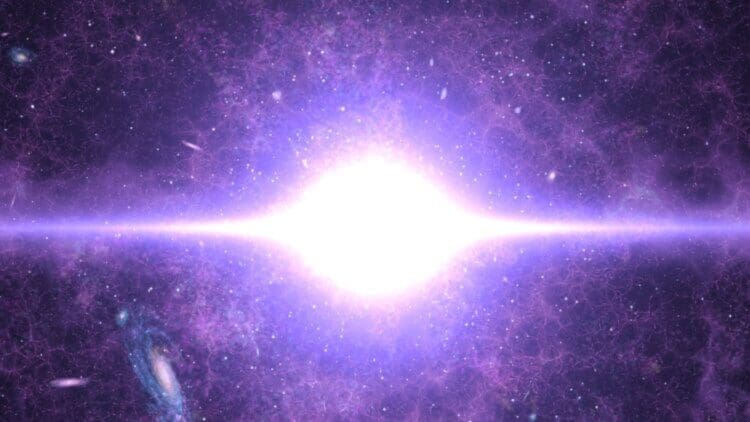The true origin of the universe remains uncertain, as ongoing discoveries have challenged the traditional Big Bang model and revealed additional cosmic events. Scientists still do not know exactly how the universe began—or how it will ultimately end—but many theories suggest that a massive expansion occurred roughly 13 billion years ago, giving rise to everything we observe today. However, what we see is not the universe as it currently exists, but rather a glimpse into its past. Two central ideas dominate our understanding of its behavior: dark matter and dark energy.
The mysteries of the universe
The obscure energy is the invisible force breaking new ground of the universe, helping with the expansion. Meanwhile, the dark matter acts like the cosmic glue that holds everything together and doesn’t let the galaxies wander around.
Einstein’s general relativity theory also plays a big role in what we know about the cosmos. The idea that everything with mass in the universe is able to bend spacetime and that’s the reason why Earth orbits the sun, or the most recent theory about gravity playing a bigger role and this could be counted as the dark matter are all considered. But now, things have just got different with this new concept.
Scientists develop a theory opposite to the Big Bang
A group of researchers is putting forward a bold new idea about how our universe might have started. Instead of the traditional Big Bang Theory, they propose that the universe could have been born inside a massive black hole within a larger “parent” universe.
The Big Bang Theory, combined with Einstein’s theory of general relativity, has explained many of the universe’s biggest questions — from the cosmic microwave background to its large-scale structure and accelerating expansion, which is often attributed to dark energy. But despite its success, the theory doesn’t answer every question. It struggles with issues like the nature of dark matter and dark energy, the singularity at the moment of the Big Bang, and its inconsistencies with quantum mechanics.
According to physicist Enrique Gaztañaga, a professor at the University of Portsmouth, many scientists have tried to fill these gaps in the Big Bang Theory by introducing ideas like dark energy or by rewriting the laws of physics altogether. But he and his colleagues wondered if a simpler answer might be possible. As he explained to Space.com, the starting point for their research was a basic yet profound question: why is the universe’s expansion accelerating?
What if the universe was born from a collapsed black hole?
The team noticed that, from an external viewpoint, our observable universe appears much like a black hole — wrapped within its own gravitational boundary. This inspired the radical possibility of a universe originated from a collapse, similar to how a star becomes a black hole. Their new study propose the idea that the universe didn’t begin with a singularity at all. Instead, it emerged when a massive cloud of matter collapsed within another universe. To test the theory, the researchers ran a series of simulations, searching for a solution that could resolve long-standing inconsistencies in cosmology.
The theory was tested
In doing so, they discovered that an exact, analytical solution already existed for this process. Gaztañaga explained that, under certain conditions, this collapse doesn’t end with a singularity: it rebounds and begins to expand. An event that mimics the Big Bang itself. According to the researchers, it doesn’t require introducing new, speculative forces or particles. Instead, it describes a process based purely on gravity, showing how a black hole’s collapse could naturally give rise to a new, expanding universe.





